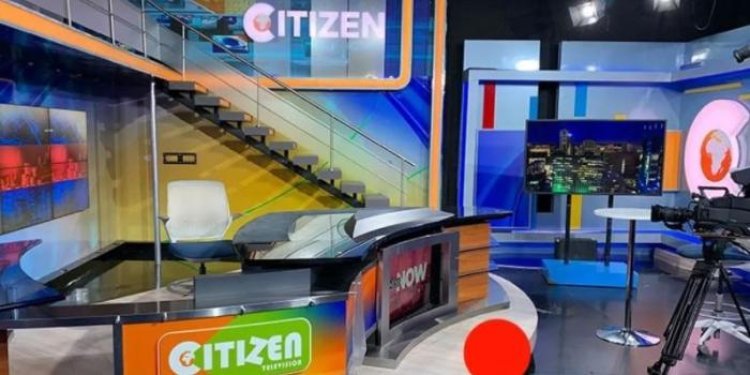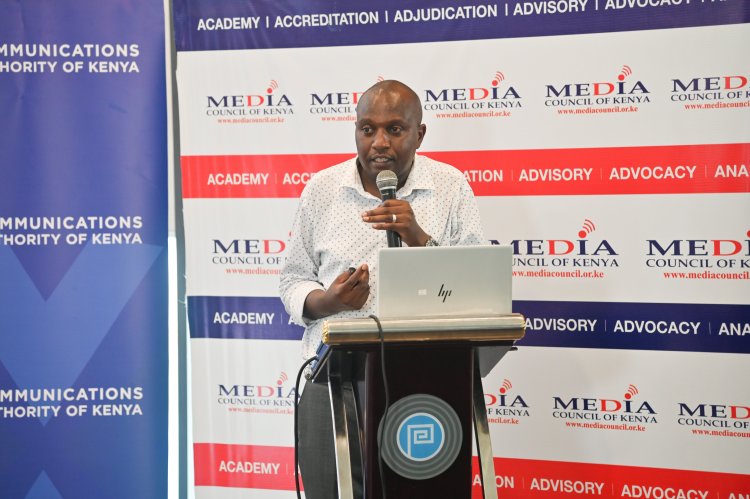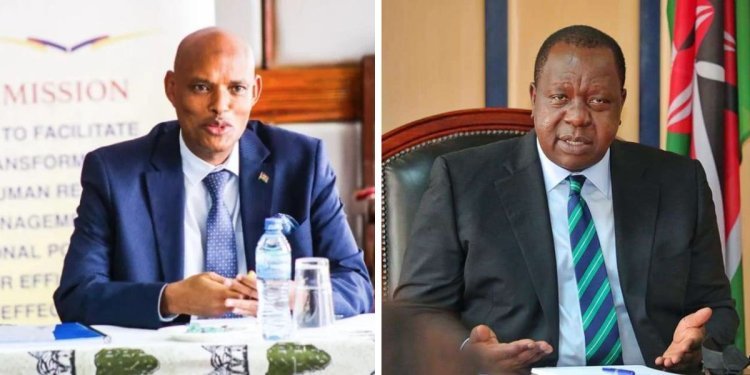MCK Turns Against Citizen TV, NTV, KTN Over Photos, Footage Of Matiang'i Raid
MCK noted that it resorted to writing letters and sending a public request to media houses over the matter

The Media Council of Kenya (MCK) has issued an update to its letter to several media houses requesting information around coverage of the alleged raid by police and other law enforcement agencies at the home of former Interior Cabinet Secretary (CS) Dr Fred Matiang'i.
In a statement dated Monday, March 6, MCK noted that it resorted to writing letters and sending a public request to media houses over the matter following the widespread condemnation of the media and denial by members of the public.
It further noted that it needed facts so as to come to the defence of the media from attacks and accusations and to protect press freedom as envisaged in the Constitution of Kenya.
MCK however faulted the media for failing to furnish them with photos or videos of the alleged raid on the evening of Wednesday, February 8 at his residence in Karen.

"The request was an opportunity for the media to not only show its professionalism and responsibility on public interest matters but specifically to disapprove the government agencies which had put the credibility of the media on the spot.
"Unfortunately, despite the MCK media monitoring system capturing 26 news articles by mainstream media on the event, none showed either Dr Matiang'i himself or his home or even the alleged security officials. The media have failed to provide any photos or videos," MCK CEO David Omwoyo stated in part.
MCK further revealed that it sought facts to defend the media after it was made aware that the matter was putting the credibility of the media at stake and being questioned in the court of public opinion.
In the absence of the information requested by the Council, apologies and/or retractions or corrections, MCK added that the media remains accused of misleading the public and failing to adhere to their own Code of Conduct.
While it is committed to fearlessly defending media freedom, the safety of journalists and ensuring the government entities leave media to operate freely, MCK went on to state that it has a duty to protect Kenyans from unfair coverage and media practice.
The Code of Conduct for the Practice of Journalism in Kenya was developed by the media fraternity themselves and recognised by parliament as a law, therefore, the media regulator monitors the media adherence to the same and exercises regulatory oversight.
"By failing to adhere to their own Code of Conduct and rejecting any form of peer review or established regulations and practice, the media becomes a threat to democracy and press freedom and instead become agents of impunity who are resisting any form of accountability.
"While some sections of the media resorted to accusing the Council of joining hands with forces bent on threatening press freedom in Kenya, MCK reiterates that being reminded of your ethical responsibility and professional obligation to adhere to the code of ethics is not a threat to press freedom but protecting public interest and citizen exposure to misleading media content," added MCK.
The regulator expressed its respect for journalistic privileges including the protection of sources and routine due diligence and verification of information on public interest issues, which it termed a basic exercise that takes place regularly and is meant to shield the media against unwarranted attacks while at the same time protecting the public.
"We believe that media accountability is a critical part of achieving an independent, responsible, and professional media that citizens are in dire need of. Access to quality information by the public is the minimum the media can do to citizens even as they deal with other professional challenges," added MCK.
The regulator had indicated on Saturday, February 11 that it was carrying out its monitoring function on the evening of Wednesday, February 8 when it stumbled upon live coverage of the police raid which immediately grabbed the attention of members of the public.
Omwoyo thus wrote to media houses including the Royal Media Services (RMS), Nation Media Group (NMG) and Standard Media Group (SMG) among others requesting to be provided with video evidence of the raid as well as the names of reporters and editors sent to Matiang'i's Karen home.
Meanwhile, Matiang'i himself was summoned by the Directorate of Criminal Investigations (DCI) to appear at the headquarters at 9.30 am on Tuesday, March 7 amidst investigations on allegations of publication of false information regarding the alleged raid.
Michael Sang, a senior Superintendent of police attached to the DCI Headquarters' Serious Crimes Unit, pointed out that should the allegations be deemed true, it would contravene section 23 of the Computer Misuse and Cyber Crimes Act 2018 amongst other offences.
According to the Act, a person who knowingly publishes information that is false in print, broadcast, data or over a computer system that results in panic or chaos among citizens or which is likely to discredit the reputation of a person, commits an offence and is liable upon conviction to a fine not exceeding Ksh5 million or to imprisonment for a term not exceeding ten years, or both.


 admin
admin 




